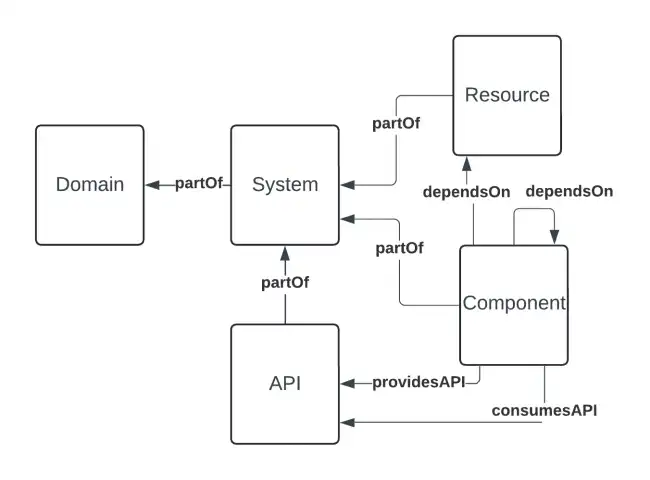Model your software
Published on April 23rd, 2022Introduction
Backstage, the open source project upon which Roadie is built, has an opinionated stance on the structure of a software catalog. We’ve built some flexibility into that model, but at it’s core we still maintain concepts of: entities, kinds, relations and types, all stored in metadata about a given entity.
Catalog Entities
Each catalog item in Roadie is referred to as an “entity”. You can find all the kinds and their available fields supported in Roadie here.
Kinds
Roadie supports a few main kinds of entity:
Business or ‘ecosystem’ kinds, which model the organisational context in which software is created:
- Domain - a collection of entities and Systems that form some distinct part of your organisation;
- System - a collection of different entities that have a set function.
- Product - a collection of different entities that constitute a product.
Software kinds, which model the individual elements of your software:
- Components - for example a website or a data pipeline. Components can be traced in source control or represent some open source or commercial product.
- APIs - attached to components but a first-class citizen of the data model, APIs form the boundaries between Components.
- Resources - pieces of infrastructure required by Components.
- Repositories - source code representations of other entities, often created automatically when a source code management tool like GitHub is connected to Roadie.
And ownership kinds, which model
- Users - a person
- Groups - a team, an interest group, or a part of the organisation that you wish to demarcate.
There is also a special kind called Locations which provides a reference by which Backstage looks for catalog data.
Relations
Entity kinds are associated with one another using entity relations.
Relations in Roadie are more flexible than standard Backstage relationships. You can find all the supported relationships here
Relations are represented in the catalog-info.yaml files for a given entity. Often they can be added automatically such as when you import users and teams from an external IDP like Okta.
{
// ...
relations: [
{
type: ownedBy
targetRef: group:default/developers
}
]
}More information on relations can be found here.
Types
You can also assign types to each entity as you see fit. Types are user-defined and can be used as you see fit.
Types may include:
- Website;
- Database;
- or Library.
More information can be found here.
Other metadata
Reserved fields
A number of fields are reserved with special meaning:
- name
- namespace
- uid
- title
- description
- labels
- annotations
- tags
- links
More details can be found in the Backstage docs.
Adding your own data
The metadata object is currently left open for extension. This often allows the storing of useful information about a given entity that can then be rendered in the Roadie UI. For example,
{
// ...
metadata: {
name: teachers,
purple-monkey: dishwasher
// ...
}
}